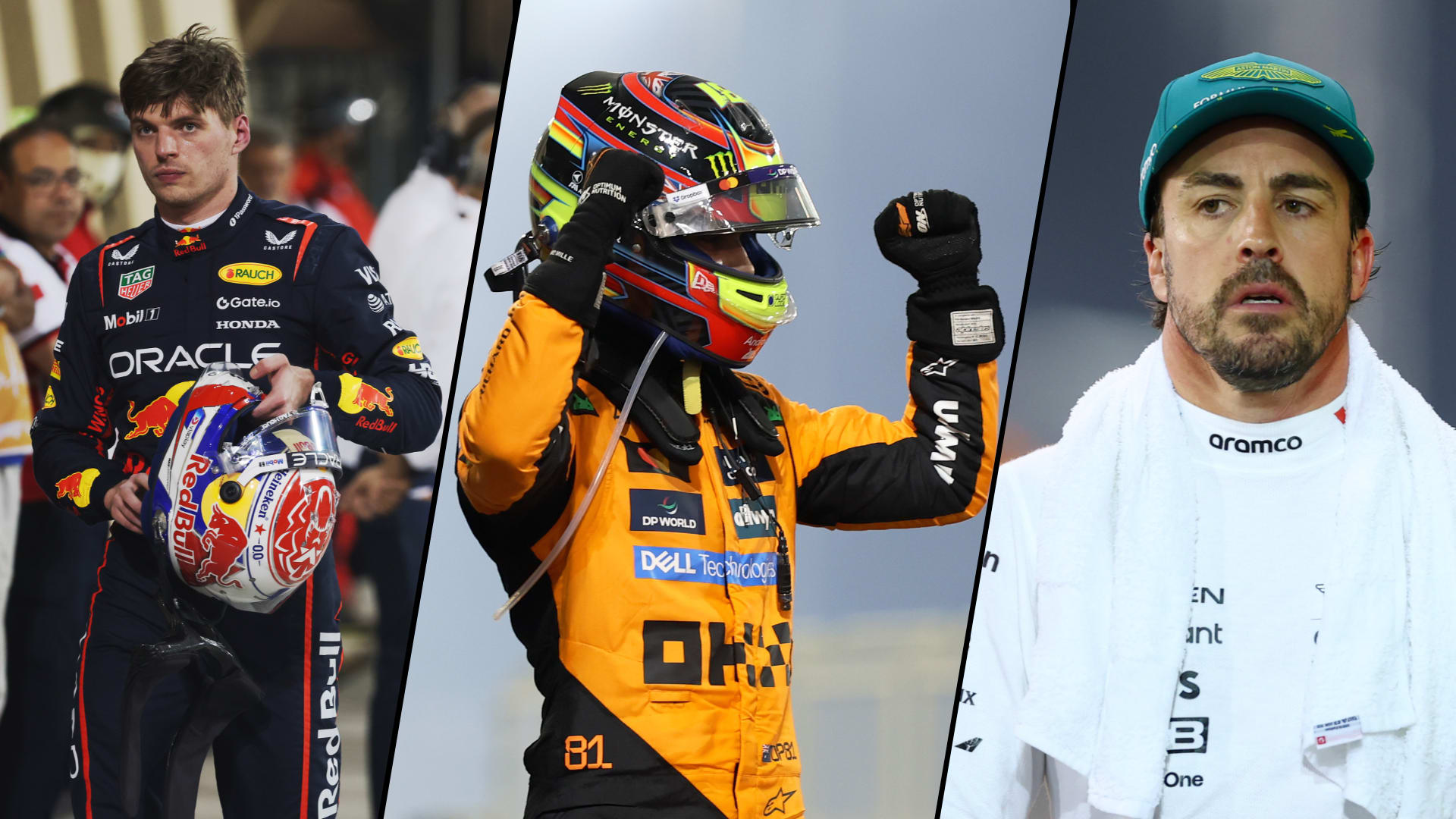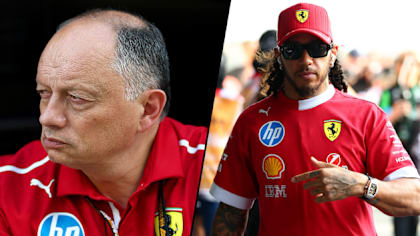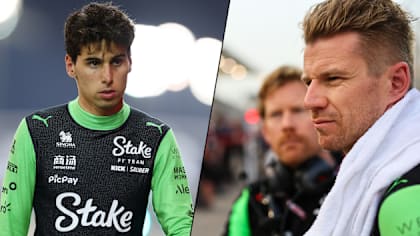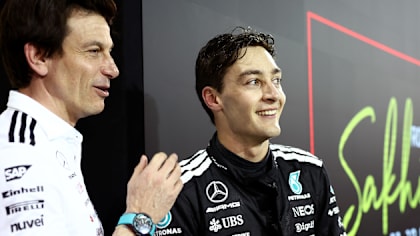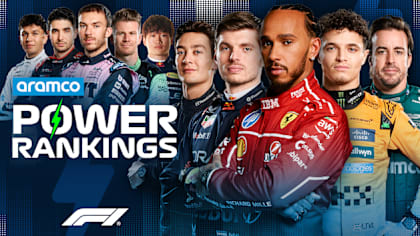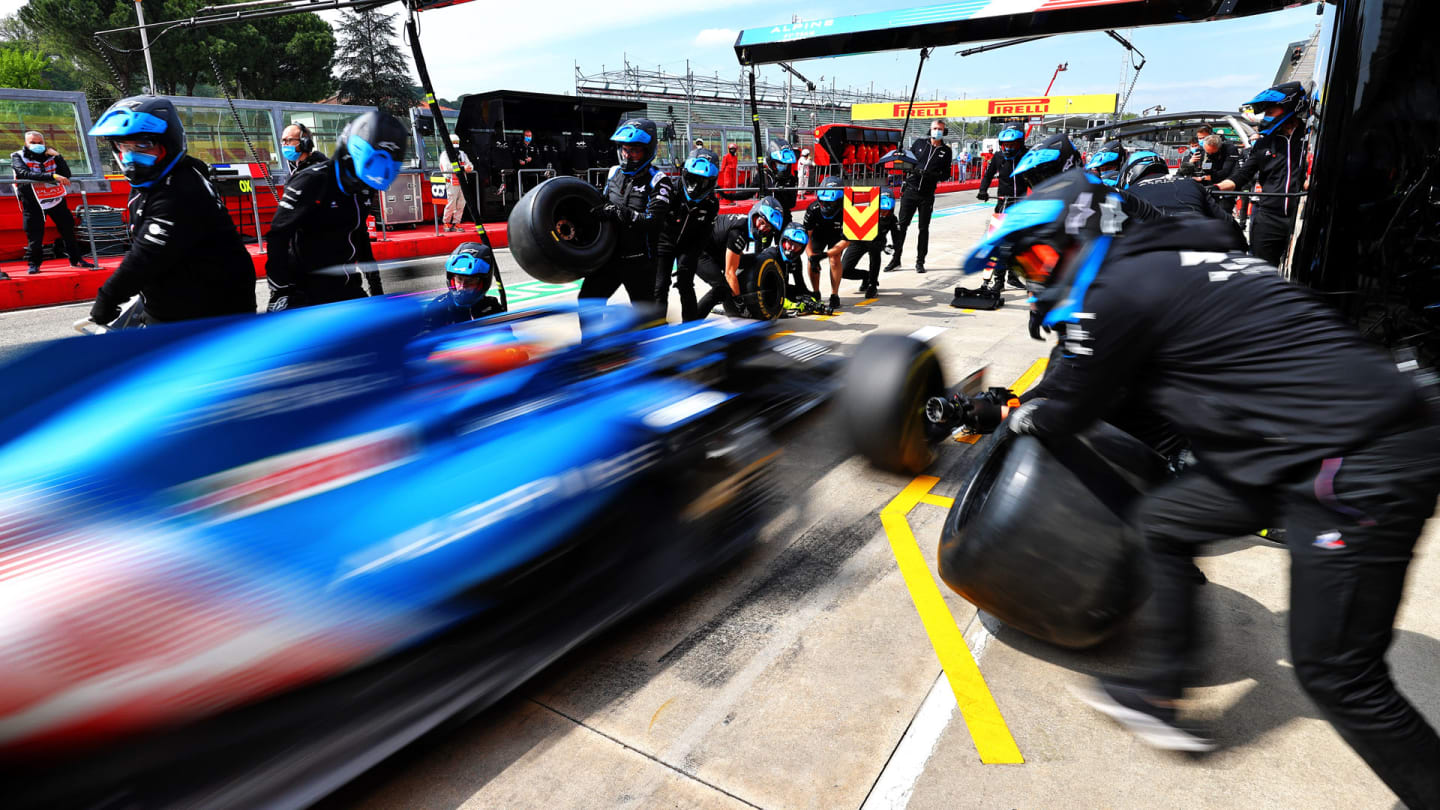
Feature
STRATEGY GUIDE: What are the possible race strategies for the Spanish Grand Prix?

Share

No split in tyre choices at the front of the field for once but a decision to make in terms of number of stops, we take a look at the different strategic options ahead of today’s race at the Circuit de Barcelona-Catalunya...
What are the likely strategies for the frontrunners?
Unlike a number of recent races, all of the top ten drivers will be starting on the same tyre compound after using the softs to advance from Q2. Usually Mercedes and Red Bull - as well as often one of the likes of Ferrari or McLaren - manage to make it through on the mediums, opening up strategic options in the first stint of the race.
That’s not the case this weekend, where the soft tyre was used for the best times in Q2 and will therefore be the compound that every driver in the top ten starts on.
What To Watch For in the Spanish GP: Hamilton vs Verstappen at Turn 1 and a mighty midfield scrap
That leans things more towards a two-stop strategy, which is the theoretical quickest due to the fact the rear tyres can overheat and the front left wears out. Given the hard compound is notably slower here, the preferred two-stop option would be to pit for mediums around lap 16, and then again between laps 35-40 for a second set of mediums, or run long enough to return to the soft tyre.
But another factor comes into play in terms of the tyres the top two teams have available. Only Mercedes have two sets of mediums available, with Red Bull having just one set, so the latter are cornered into a soft-medium-soft or soft-medium-hard strategy if they want to two-stop. For Max Verstappen, one brand new set of soft tyres available to him means two stints on the softs is more attractive, but he’s still slightly more restricted than the Mercedes pair.
So what is looking like a very realistic other option is to switch to the hard tyre around lap 20-25, and run it to the end of the race. Wear will be something that has to be managed, but the emphasis on track position makes this a real possibility for the frontrunners, especially as they can extend that first stint to wait for the midfield to make their first stops and therefore not emerge into traffic.
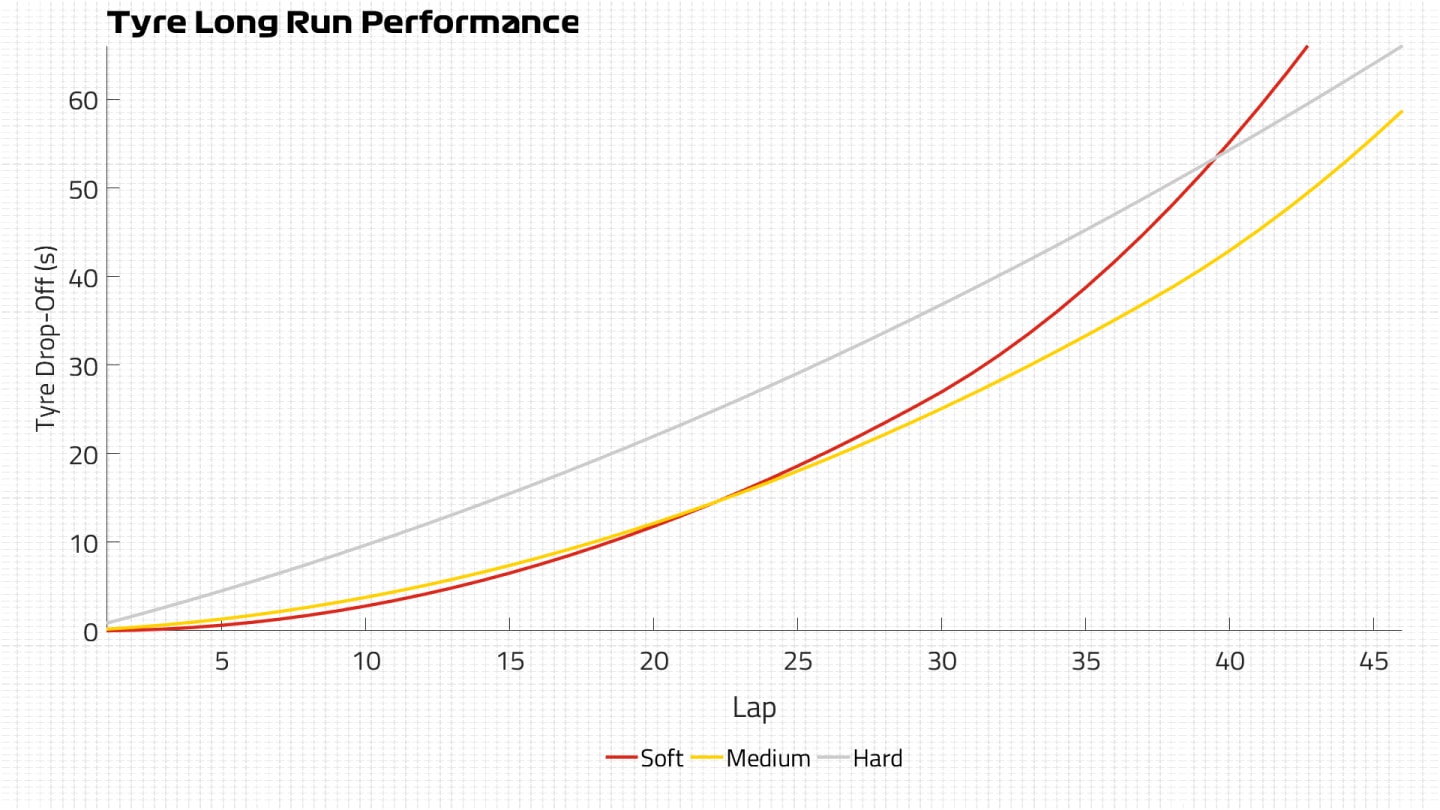
How about the rest of the top ten?
For the likes of Ferrari, McLaren and Alpine, they’re not at a disadvantage compared to Mercedes and Red Bull when it comes to the starting tyre compound, but they still are a little when we talk about pace.
Like Red Bull, all three teams only have one set of medium tyres available to them. Pitting after 19 laps to switch to mediums and then returning to a set of used softs for the final 19 laps is theoretically the quickest race, but they will be slightly more open to the one-stop, especially given the similarity in pace between all three that makes track position so crucial.
However, cars outside the top ten could then be a threat in terms of pitting and rejoining into traffic, so a two-stop featuring an earlier move to get off the starting soft compound and emerging further behind the rest of the field might work better.
For a two-stop race featuring all three compounds, then the opening stop could come as early as lap 15, and a switch to hard tyres would open up the possibility of going to the end without a second stop if the tyre held up, while also giving a much larger window to make a second stop for a set of new mediums any time after lap 35. The risk here is the hard tyre was comfortably the slowest compound on Friday, and although it is often more competitive on race day, teams would still be gambling on how much better it performs.
Clean air for all of these cars is going to be at a premium, but central to their strategies. Being caught in traffic not only slows you, it can heavily hurt your tyres in Barcelona.
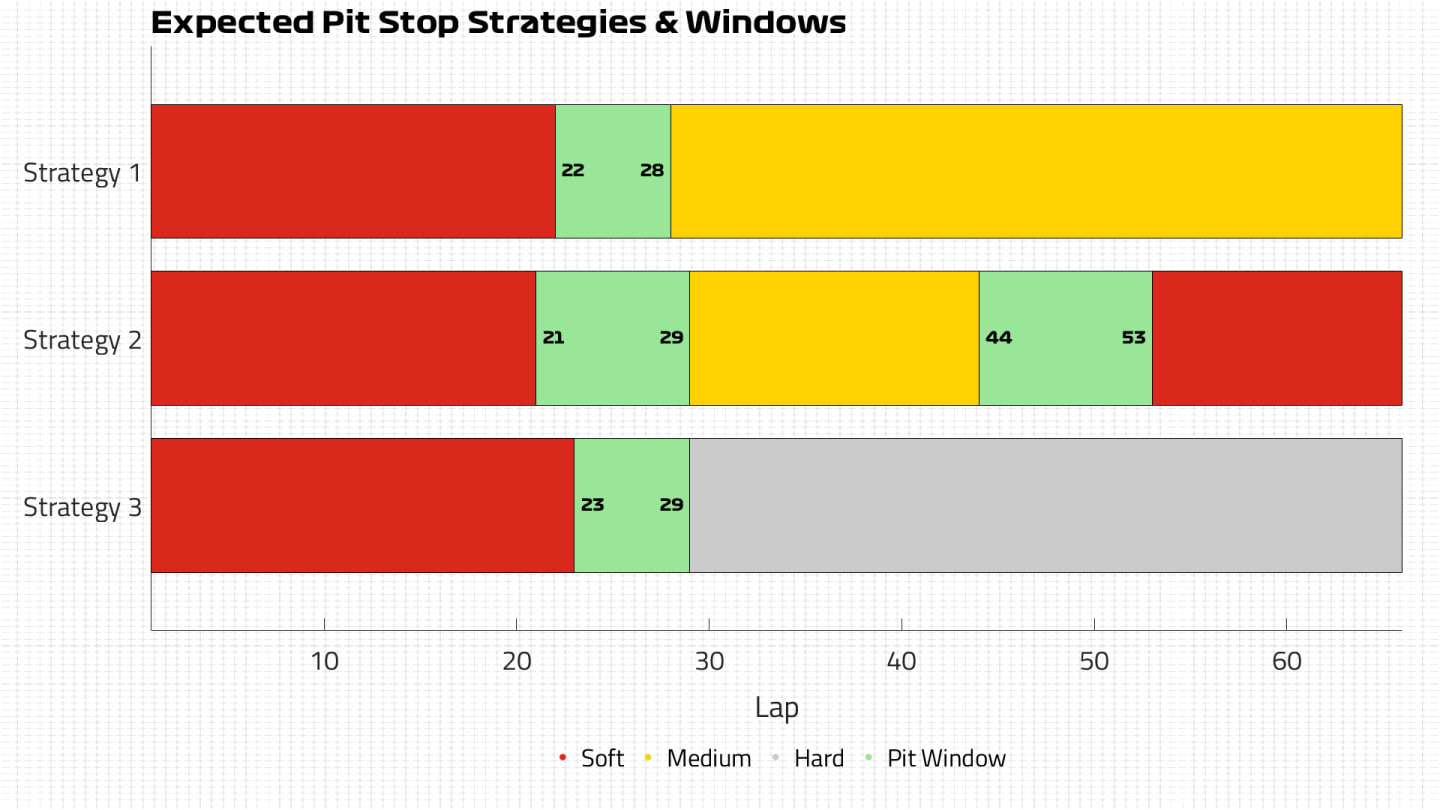
What are the options for the bottom half of the field?
Having both one and two-stop strategies available gives a bit more of an advantage to those teams outside the top ten as they can choose their starting tyre, and some have more options than others.
Alfa Romeo, Haas and Williams are the only teams other than Mercedes to have two sets of mediums available, opening up the strategy of soft-medium-medium (in any order). But they all also have at least one set of brand new soft tyres - something only Verstappen has in the top ten - so are likely to get a little more value out of their stints on that compound.
Another reason the two-stop strategy is seen as the quickest overall is the fact that the time lost in the pit lane is relatively low at 22 seconds, but for the drivers starting outside the top ten then the one-stop provides the best chance to gain track position even if they might come under pressure in the closing stages, and starting on the medium tyre would open up that possibility, with a single stop for hards from lap 30 onwards.
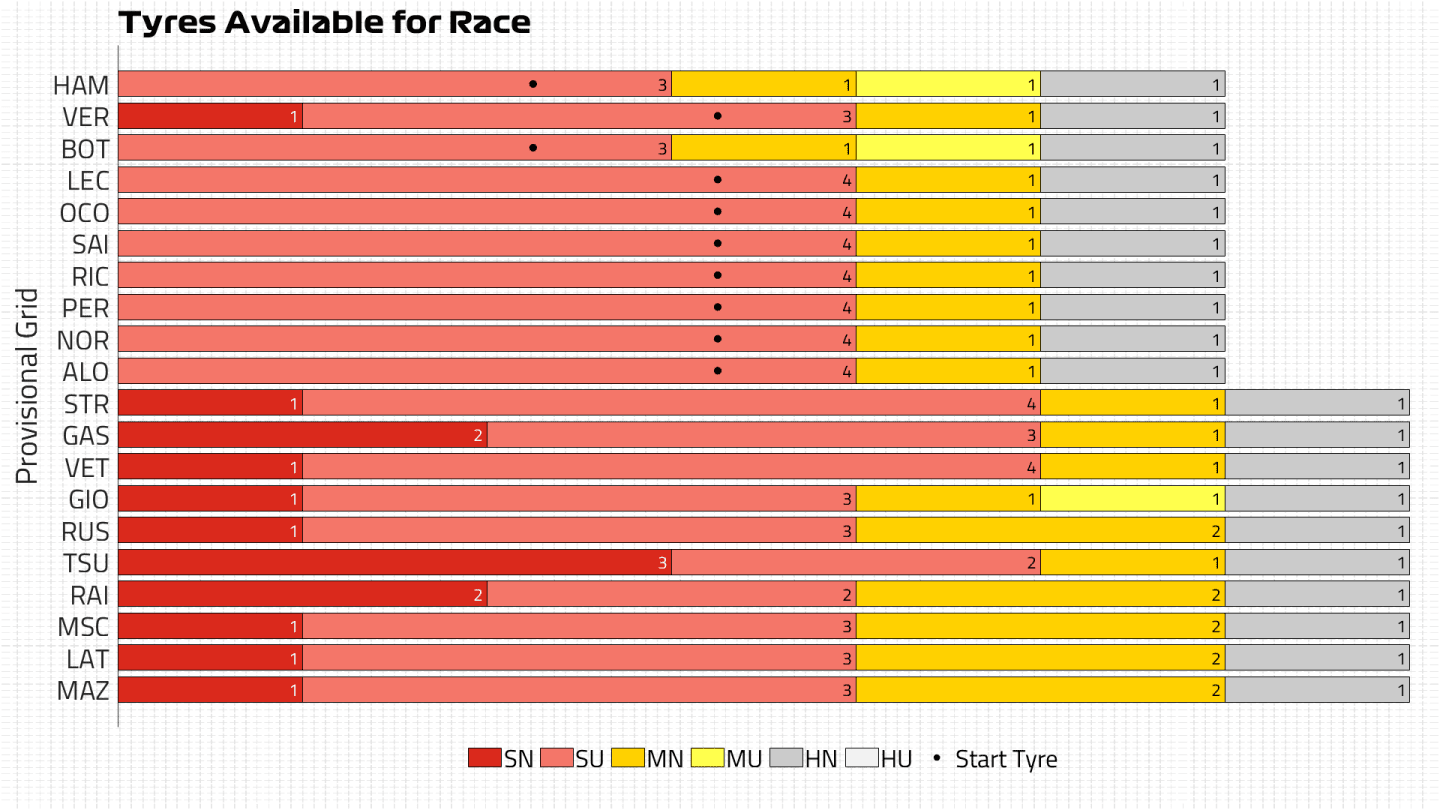
Wait, but what’s the weather doing?
Much like Portimao, the teams don’t have to worry about rain today, despite there looking like there could be a threat earlier in the weekend. Temperatures are set to be warm at 23C, which will lead to fairly high track temperatures but nothing overly concerning when it comes to tyre management.
Like last weekend, it could be gusty at times, but that looks like being the biggest challenge for all involved from a weather point of view. Thunderstorms are a possibility today, but the forecast is for them to only be a factor a number of hours after the race.
YOU MIGHT ALSO LIKE
News Vasseur urges Ferrari to ‘stay calm’ after mixed fortunes in Bahrain as he explains why Hamilton’s frustration was ‘appreciated’
News Bortoleto keen to move on from ‘challenging’ weekend in Bahrain as Hulkenberg reflects on ‘pretty dreadful’ race incident
News Wolff hails Russell’s ‘unbelievable drive’ amid numerous car issues in Bahrain as he assesses whether Mercedes can catch McLaren
FeatureF1 Unlocked POWER RANKINGS: Who made all the right moves under the lights at the Bahrain GP?
